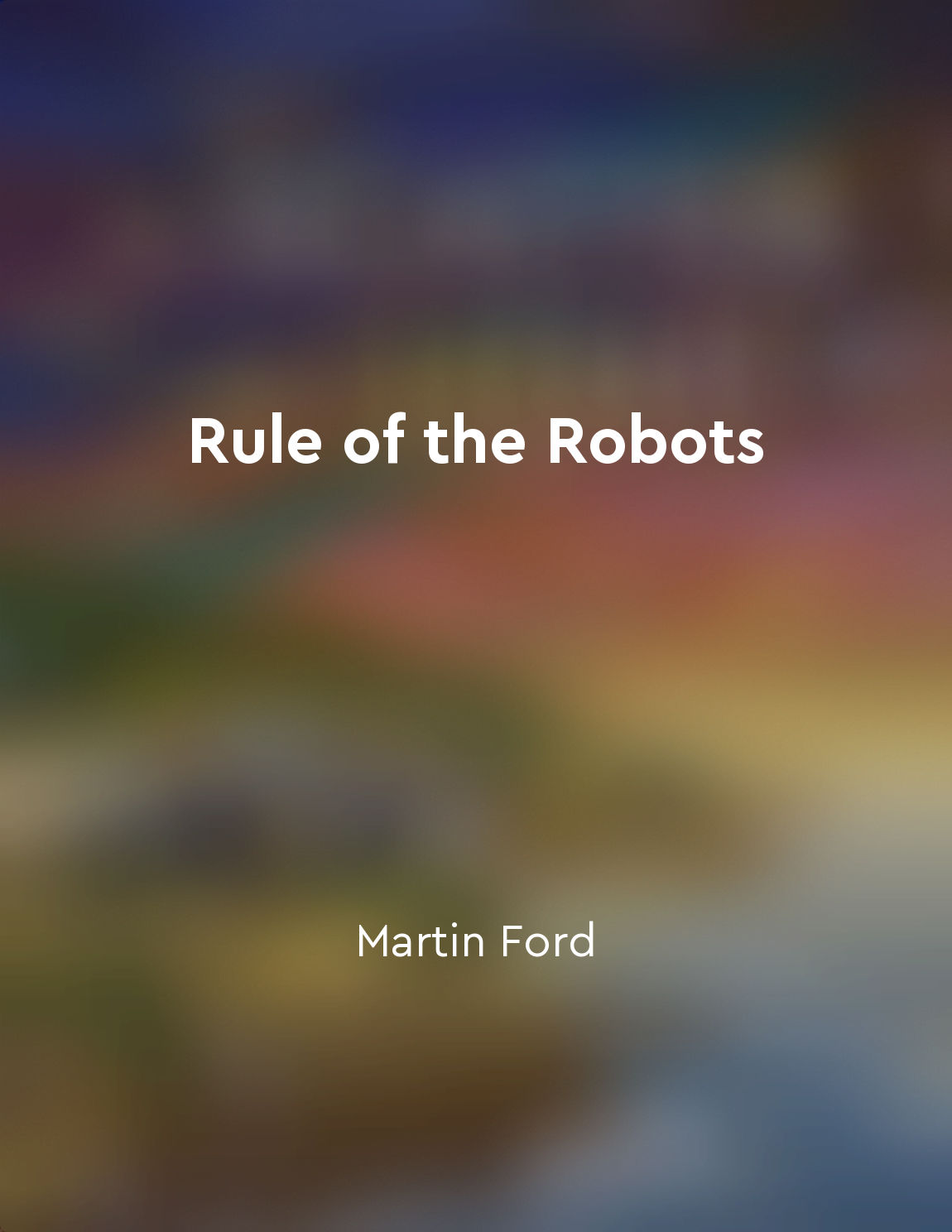Automation can lead to overreliance on external systems from "summary" of The Glass Cage by Nicholas Carr
In our growing reliance on automated systems, we run the risk of becoming overly dependent on external technology. The conveniences offered by automation can lull us into a false sense of security, leading us to trust these systems more than we should. As we offload tasks to machines, we may find ourselves losing the skills and knowledge necessary to perform those tasks manually. This erosion of our abilities can leave us vulnerable when the automated systems fail or are unavailable. When we become overreliant on external systems, we may also experience a loss of control over our own lives. By surrendering decision-making power to algorithms and machines, we cede our autonomy and agency. We may find ourselves following the directives of technology without questioning or critically evaluating them. This blind obedience to automated systems can have serious consequences, as we relinquish our ability to think independently and make informed choices. Moreover, our overreliance on external systems can lead to a diminished sense of accountability. When errors or mistakes occur, it is all too easy to blame the technology rather than take responsibility for our actions. This shifting of blame can have far-reaching implications, as it absolves us of the need to learn from our errors and improve our skills. Instead of using failures as opportunities for growth, we may simply point the finger at the automated systems that we trusted implicitly. In the end, the allure of automation must be tempered with a healthy dose of skepticism and caution. While technology can offer incredible benefits and efficiencies, we must not forget the importance of maintaining our own skills, knowledge, and critical thinking abilities. By recognizing the potential pitfalls of overreliance on external systems, we can better navigate the complex relationship between humans and machines in our increasingly automated world.Similar Posts
Machines must learn from human feedback
The key idea here is that machines must be designed to learn from human feedback. This is crucial because human values are comp...
Data is now the most valuable resource in existence
Data, once seen as a byproduct of business operations, is now taking center stage as the most valuable resource in existence. C...
Adapting to change is the new norm in the digital age
In today's rapidly changing digital age, the ability to adapt to change has become a crucial skill. As technology continues to ...
Investing in education is crucial for future success
In the fast-evolving landscape of the industries of the future, one thing remains clear: education is the bedrock upon which su...
China's government is heavily investing in AI technology
China's government has made a strategic decision to heavily invest in AI technology. The country has identified AI as a critica...
AR can revolutionize how we shop and experience retail environments
Augmented reality has the potential to completely transform the way we shop and interact with retail environments. Imagine walk...
Artificial intelligence is transforming industries
Artificial intelligence is not just a buzzword; it is a powerful force that is reshaping industries across the board. From heal...

Technological advancements are leading to rapid changes in the workplace
The rapid pace of technological advancements is transforming the workplace at an unprecedented rate. From automation and artifi...
The Middle Ages brought feudalism and the Crusades
During the Middle Ages, Europe underwent significant changes that shaped the course of history. One of the most important devel...
Government policies need to adapt to technological advancements
Government policies must keep pace with the rapid evolution of technology. As new technologies emerge and transform industries,...
